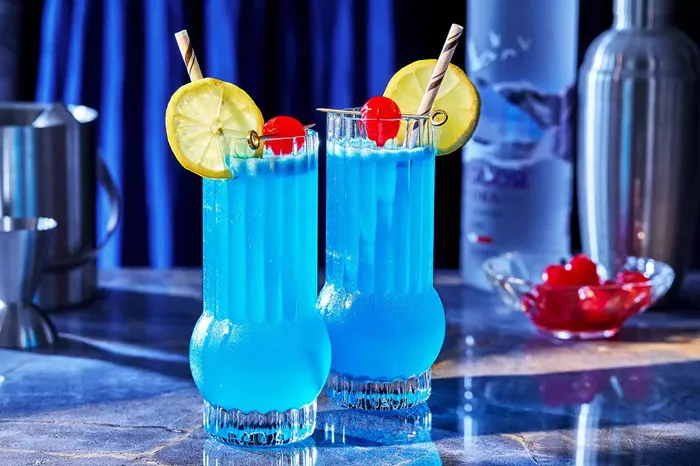Cocktails have become a popular choice for many drinkers around the world. They are often seen as fancy, unique, and flavorful. But what exactly defines a cocktail? Are cocktails merely mixed drinks, or is there more to them? This article will delve into the distinctions between cocktails and mixed drinks, their history, components, and cultural significance.
Understanding Mixed Drinks
Definition of Mixed Drinks
A mixed drink is simply a beverage that combines two or more ingredients. These can include spirits, juices, sodas, and flavorings. The primary purpose of mixed drinks is to create a refreshing beverage that enhances the flavors of the ingredients.
Common Examples of Mixed Drinks
Some common mixed drinks include rum and Coke, gin and tonic, and vodka with orange juice. These drinks are straightforward and typically require minimal preparation. They are enjoyed in various settings, from casual gatherings to more formal events.
Characteristics of Mixed Drinks
Mixed drinks tend to be less complex than cocktails. They often rely on a few key ingredients without intricate preparation techniques. Their appeal lies in their simplicity and ease of consumption.
What Are Cocktails?
Definition of Cocktails
Cocktails are more than just mixed drinks. They are carefully crafted beverages that usually include spirits, liqueurs, bitters, and various mixers. Cocktails often involve a specific method of preparation, such as shaking, stirring, or layering.
Common Examples of Cocktails
Famous cocktails include the Martini, Mojito, and Margarita. Each of these drinks has a distinct recipe that emphasizes flavor balance and presentation. Cocktails are often garnished with fruits, herbs, or other decorative elements, adding to their visual appeal.
Characteristics of Cocktails
Cocktails are defined by their complexity and artistry. They often involve a balance of flavors and textures. Bartenders, or mixologists, use various techniques to enhance the drinking experience. This can include shaking, muddling, or layering ingredients for visual effect.
See Also: What are Good Cocktail Drinks?
Key Differences Between Cocktails and Mixed Drinks
Complexity and Preparation
One of the primary differences between cocktails and mixed drinks is complexity. Cocktails often require a more involved preparation process. Mixologists pay attention to flavor profiles and presentation. Mixed drinks, on the other hand, are typically quicker to make and less intricate.
Ingredients
While both cocktails and mixed drinks may use similar base ingredients, cocktails usually feature a wider variety. Cocktails may include bitters, liqueurs, fresh herbs, and unique flavorings, while mixed drinks tend to focus on two or three main components.
Flavor Profile
Cocktails are designed to provide a harmonious blend of flavors. They often balance sweetness, bitterness, and acidity. Mixed drinks, while enjoyable, may not always aim for such a careful balance. They often highlight the main spirit without additional complexity.
The Art of Mixology
Definition of Mixology
Mixology is the craft of creating cocktails. It involves a deep understanding of flavors, techniques, and presentation. Mixologists are akin to chefs in the kitchen; they experiment with ingredients to create unique drinking experiences.
Skills Required
A skilled mixologist possesses knowledge of various spirits and their characteristics. They understand how to balance flavors and create interesting combinations. Techniques such as shaking, stirring, and muddling are essential skills in mixology.
The Role of Presentation
Presentation plays a crucial role in cocktails. The way a drink looks can enhance its appeal. Garnishes, glassware, and color all contribute to the overall experience. A well-presented cocktail can elevate the occasion and make it feel special.
Cultural Significance of Cocktails
Historical Background
Cocktails have a rich history that dates back centuries. The term “cocktail” first appeared in print in the early 19th century. Over time, cocktails evolved, reflecting social changes and cultural trends.
Cocktails in Social Settings
Cocktails often serve as a centerpiece in social gatherings. They create a sense of occasion and celebration. In many cultures, cocktails are a staple at parties, weddings, and formal events, enhancing the festive atmosphere.
The Rise of Craft Cocktails
In recent years, there has been a resurgence in craft cocktails. This movement emphasizes quality ingredients, creativity, and the art of mixology. Bars dedicated to craft cocktails focus on creating unique experiences for their customers.
Conclusion
In conclusion, while cocktails can be categorized as mixed drinks, they represent a unique art form that goes beyond mere combinations of ingredients. The complexity, preparation, and cultural significance of cocktails set them apart. Understanding these differences enriches the appreciation for both cocktails and mixed drinks. Next time you enjoy a cocktail, consider the craftsmanship and thought that went into its creation.
You Might Be Interested In:


